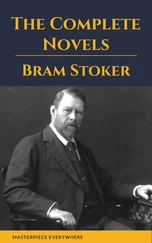I said, “Then you were in our army. A deserter, I suppose?”
He looked at me gloomily, and said in bad Latin, “No—sir. I was—an optio in the auxiliaries here at Moguntiacum. I was taken prisoner when the Alemanni raided the town.” He dropped his eyes. “I was only a boy at the time.” He added, in a low voice, “I have been a slave ever since. That was a long time ago.”
I turned to Barbatio. “Thirty years,” I said. “In the name of the gods! Thirty years.”
Barbatio, his face flushed, said, “All the men in this pen have been sold, sir. To a merchant from Treverorum.”
“Did you tell the dealer you were a Roman citizen?”
Fredbal shrugged his shoulders. “It never makes any difference. They sell you just the same.”
“How do you know that?”
He said, “I used to listen to—to my master talking. He was an Aleman. People never care what they say in front of slaves. It’s a common thing. They all do it. There’s a big trade in the likes of us across the river.”
Barbatio said, “Yes, that’s true, sir.”
I said savagely, “You, certainly, should know that. Have him brought up to the camp. Get the records looked up and check his story. If it’s true then we can find a use for him—as a free man.”
Barbatio said in a shocked voice, “There will be complaints. This is a common practice.”
“You mean it was. If the merchant complains, arrest him. It is an offence to sell a free citizen in his own land. And get the magistrates and have the market closed at once.”
“But, sir, he’s one of a lot already bought and sold.” The tribune added desperately, “They’ve been purchased for work on one of the new churches in Treverorum. The merchant told me.”
“You heard my orders.”
“But, sir, the Bishop—the Praefectus—”
“I am the governor here.”
“Yes, sir.” He saluted and hurried off.
I turned and walked back towards the camp, the man following me like a dog.
‘Thirty years,’ I thought. ‘He kept that disc for thirty years in hope. And then he was bought and sold by his own people to work for the church. Oh, Mithras, you would not ask that of any man.’
At last came the news for which I had been waiting; first a rumour only of a great victory in Italia, brought by a wine merchant returning from Mediolanum; and then a letter, containing the facts and the details: a letter from Stilicho himself.
Radagaisus had been beaten. He had tried to besiege Florentia, had been besieged in his turn by Stilicho, had tried to fight his way out and had been captured and executed. More than a third of his men, Suevi, Vandals, Alans and Burgundians, had died beneath the walls of the city. The remainder had retreated north into the country of the Alemanni.
At the end Stilicho wrote: “We took so many prisoners that we glutted the market and, at the end, we were selling them at only one solidus a head, which was absurd. Many chose to enlist in our forces, however, and because of this I had hoped to return a part of my army to help you gather grapes in Gaul; but the news from Illyricum forbids this, unhappily, for the moment. From the complaints I have received about you from those close to the Emperor I judge that you are fulfilling my expectations to the uttermost. Alaric is, as before, the problem that I have to solve. To quiet his ambitions we have been compelled to appoint him to a high office in the imperial service, but the fact remains that those who follow him represent too large a lump for the stomach of the empire to digest in comfort. I intend to move into Illyricum next spring with all the forces I can muster, but I must not alarm Alaric as to the nature of my intentions towards him. This time a final settlement cannot be avoided. And I have affairs to smooth over in Dacia and Macedonia that can no longer be delayed. I must, as they used to say, hasten slowly.
“This means, my dear friend, that I must ask you to hold Germania Superior for another twelve months. Give me this time, I pray you, and all will yet be well. I have ruled this empire, who am no emperor, for ten years now, and I shall continue to rule it until I die. You may believe in my judgement as I believe in yours. Serena sends her greetings as I do to you both.”
I showed this to Quintus and he said, “Shall we ever get relief? I think they will only send more troops when we ourselves are in trouble. And then it will be too late.”
“That is what I am afraid of,” I said.
IX
TWO DAYS LATER I received a visit from Guntiarus, the Burgundian king, who crossed the river to meet me at Bingium by arrangement. He was short and swarthy and he reminded me strongly of a kestrel about to fly. But he was an old kestrel and I judged that he was fiercer in looks than in performance. Like all his people he greased his hair, which he wore down to the nape of his neck, and, it being a hot day, I could smell him before he came. Most of our auxiliaries were Burgundians and there had long been a standing feud between them and the Alemanni on account of a dispute over some salt springs which both tribes claimed as their own. I prayed to Mithras, unworthy though my prayer was, that the dispute might continue.
I showed him round the camp and, though he said little, he was properly impressed.
“This is only my advance guard,” I said. “Soon I shall have a great army. Rome does not forget its provinces when they need help.”
“Do you need help?” he asked shrewdly.
“No,” I lied. “But I can allow no more of your people across this river. That is what I wish to tell you.”
He looked troubled. He said, “Things have changed since Stilicho and I held hands over the salt. My people have increased in number and we have had bad harvests. The land is too poor to support so many.”
“Then you must spend more time in growing crops; less time in breeding horses.”
“It is not the same.”
“Rome can help with silver, if you are not too proud to accept the gift.” I paused and he blinked at me. “We would not wish your children to starve.”
He hesitated. “I am still a king in my own land,” he muttered.
“That is understood. And as a king in your own land you would hold it against all who tried to take it from you.” I paused again and looked at a squad of marching men. “My soldiers defend the allies of Rome as well as the citizens of Gaul.”
He put his knuckles to his mouth. “The Alemanni—”
“Are not as strong as they would have others believe,” I said.
Still he hesitated.
“Silver,” I said. “But no land.”
He said grudgingly, “My people are content with what they have.”
I did not smile.
That night we feasted him and he became very drunk. “I have fine daughters,” he said. “They are young and strong and pleasing. I will send you one and she shall be your wife as a sign that we are friends.”
“You do me great honour,” I said.
He left next morning, dripping with water that his servants had flung over him to get rid of his headache. I hoped that he would forget his promise. I did not want another wife.
Later I crossed the river at Bingium with a large escort and rode into the dark green hills that lay between the Burgundians and the desolate plain that belonged to the Alemanni. In a thick glade, full of dark shadows and shifting sunlight, we suddenly found ourselves surrounded by armed men. I raised my hands to warn my men to keep theirs low on their saddles. Then I rode towards their leader who sat barebacked on a roan mare as still as himself.
“Prince Marcomir,” I said.
“Yes.” He saluted me in the Frankish fashion.
“You know me?”
“Yes.” He was taller than Guntiarus and young enough to have been my own son. Suddenly he smiled. “My people have talked of little else since your soldiers lined the river.” He added grimly, “It was not before time.”
Читать дальше












